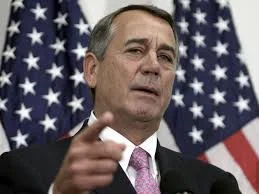Marijuana Lowers Opioid Use, UGA Researchers Say
By Lee Shearer
Legalizing medical marijuana appears to lead to less prescription opioid use, and could help curb the national opioid epidemic, a University of Georgia research study finds.
UGA researchers studying Medicare records found that states that had legalized marijuana dispensaries saw a 14.4 percent drop in the use of prescription opioids among Medicare Part D patients between 2010 and 2015. States that allowed only home cultivation saw a reduction of about 7 percent.
Medicare Part D is an optional prescription drug benefit plan open to people — mainly those 65 and older — enrolled in Medicare, the federal health insurance program for people 65 and older.
The opioid prescription types they looked at included hydrocodone, oxycodone, morphine, methadone and fentanyl.
The researchers have also looked to see if there were changes in the rates at which doctors prescribed other, nonopioid drugs such as blood thinners and flu medications, but found no changes in those prescription rates, according to the study’s lead author, Ashley Bradford. a graduate student in UGA’s School of Public and International Affairs, or SPIA.
“Physicians cannot prescribe cannabis; it is still a Schedule I drug,” said study co-author David Bradford in a news release. “We’re not observing that prescriptions for cannabis go up and prescriptions for opioids go down. We’re just observing what changes when medical cannabis laws are enacted, and we see big reductions in opiate use.”
David Bradford holds the Busbee Chair in Public Policy in SPIA, and is Ashley Bradford’s father. Co-authors of the paper are Amanda Abraham, another SPIA professor, and Grace Bagwell Adams, a professor in the UGA College of Public Health.
Their research was published recently in the Journal of the American Medical Association Internal Affairs.
Opioid prescriptions have gone up from around 148 million prescriptions in 2005 to 206 million in 2011, the authors wrote, and prescription rates are three times higher now than in 1999. Meanwhile, the number of opioid-related deaths has dramatically increased, from 14,910 in 2005 to 33,091 in 2015. Those death statistics also include fatalities related to heroin, which is illegal, in addition to prescription opioids.
But because many of the deaths are attributed to opioids that can be legally prescribed, “there is reason to suspect that controlling the demand for opioid prescriptions should aid in the public health battle against unintentional opioid mortality,” the authors wrote.
In earlier research examining Medicare Part D records, the Bradfords also saw a decline in the use of other drugs prescribed for conditions in which marijuana can be an alternative treatment, such as nausea, depression, sleep disorders and spasticity.
If all states legalized medical marijuana, Medicare could save about $468 million annually, they concluded in that earlier study.
Source:
http://www.onlineathens.com/news/20180409/legal-marijuana-lowers-opioid-use-uga-researchers-say







